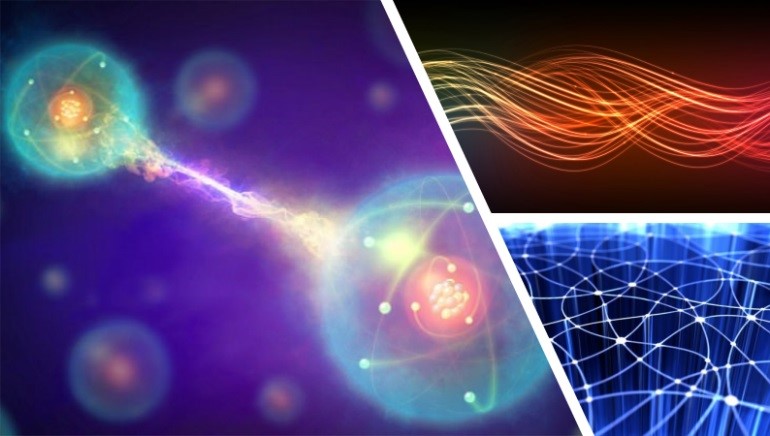
Explaining the natural world in terms of cause and effect is the central pillar of science. Yet, only recently a theory of causality was introduced, allowing to model causation in various fields of research. At least those governed by classical mechanics. To shake even more the foundations of causality, it has been discovered that our most basic notions of cause and effect are incompatible with quantum phenomena. Entangled quantum particles can be so strongly correlated that it seems like they behave as a single information unit, defying our most basic notions of space and time and leading to the the apparent “spooky action at a distance” abhorred by Einstein in the phenomenon known as quantum non-locality. Both entanglement and non-locality are the core of the second quantum revolution as they enable the enhanced processing of quantum information in diverse applications. Yet, the understanding of entanglement and non-locality -and its interconnections to how we perceive space and time and manipulate information- has been mostly restricted to simple causal structures. To cope with that, a new research field has emerged to develop the basic framework to reason about causality in a quantum world.
QuantumLab has been founded by The John Templeton Foundation in order to study this increasing field of research. The project entitled “Q-CAUSAL” aims to bring this field to its next level, understanding theoretically and experimentally the foundational and practical implications of quantum causality. Basic questions include:
What is required for the emergence of non-classicality in a causal structure?
How can we turn this into a novel resource?
What are the consequences to usual causal discovery algorithms?
Answers to these questions will shed new light on the advantages and limitations of quantum enhanced protocols and thus unveil the role of causality in quantum theory.

Selected publications
- G. Carvacho, R. Chaves and F. Sciarrino. Perspective on experimental quantum causality. EPL (Europhysics Letters) 125 (2019).
- R. Chaves, G. Carvacho, I. Agresti, V. Di Giulio, L. Aolita, S. Giacomini, F. Sciarrino. Quantum violation of an instrumental test. Nature Physics 14, 291 (2018).
- E. Polino, I. Agresti, D. Poderini, G. Carvacho, G. Milani, G. Barreto Lemos, R. Chaves and F. Sciarrino. Device-independent test of a delayed choice experiment. Phys. Rev. A 100, 022111 (2019).
- G. Carvacho, F. Andreoli, L. Santodonato, M. Bentivegna, R. Chaves, F. Sciarrino. Experimental violation of local causality in a quantum network. Nature Communications 8, 14775 (2017).
